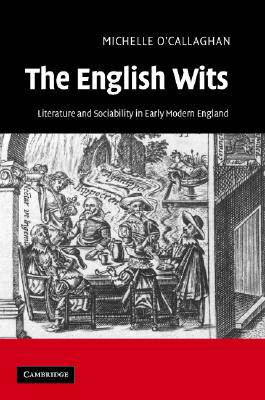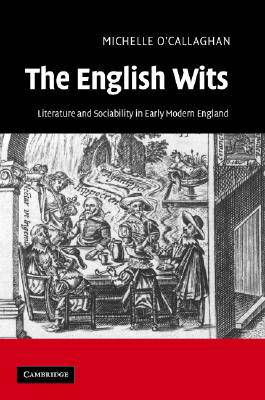
- Afhalen na 1 uur in een winkel met voorraad
- Gratis thuislevering in België vanaf € 30
- Ruim aanbod met 7 miljoen producten
- Afhalen na 1 uur in een winkel met voorraad
- Gratis thuislevering in België vanaf € 30
- Ruim aanbod met 7 miljoen producten
Zoeken
The English Wits
Literature and Sociability in Early Modern England
Michelle O'Callaghan
Hardcover | Engels
€ 172,95
+ 345 punten
Uitvoering
Omschrijving
In the late sixteenth and early seventeenth centuries the Inns of Court and fashionable London taverns developed a culture of clubbing, urban sociability and wit. The convivial societies that emerged created rituals to define social identities and to engage in literary play and political discussion. Michelle O'Callaghan argues that the lawyer-wits, including John Hoskyns, in company with authors such as John Donne, Ben Jonson and Thomas Coryate, consciously reinvigorated humanist traditions of learned play. Their experiments with burlesque, banquet literature, parody and satire resulted in a volatile yet creative dialogue between civility and licence, and between pleasure and the violence of scurrilous words. The wits inaugurated a mode of literary fellowship that shaped the history and literature of sociability in the seventeenth century. This study will provide many insights for historians and literary scholars of the period.
Specificaties
Betrokkenen
- Auteur(s):
- Uitgeverij:
Inhoud
- Aantal bladzijden:
- 244
- Taal:
- Engels
Eigenschappen
- Productcode (EAN):
- 9780521860840
- Verschijningsdatum:
- 12/03/2007
- Uitvoering:
- Hardcover
- Formaat:
- Genaaid
- Afmetingen:
- 164 mm x 228 mm
- Gewicht:
- 521 g

Alleen bij Standaard Boekhandel
+ 345 punten op je klantenkaart van Standaard Boekhandel
Beoordelingen
We publiceren alleen reviews die voldoen aan de voorwaarden voor reviews. Bekijk onze voorwaarden voor reviews.











